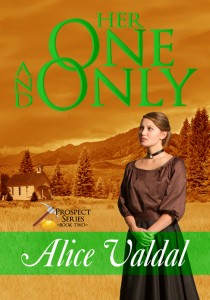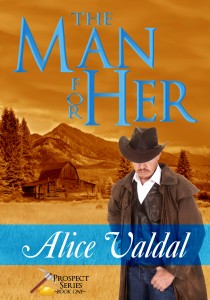Before I get to talking about me and my writing I want to thank Cynthia for having me on her blog. I love her tag line, “courageous women, honourable men.” In my own writing I’m keen to tell stories about just such men and women.
Was your road to publication fraught with peril or a walk in the park?
Did you have several manuscripts finished before you sold? If so, did you send them out yourself?
I’ve grouped these two questions together because I’ve got two stories about achieving the status of published author. I wrote my first manuscript as a total innocent. I’d been bingeing on Harlequin Romances and my then husband said, “you could write one.” It took a few years and a couple of moves across Canada before I found myself in a place where I could try my hand at writing. I knew nothing about the publishing industry, but I was steeped in the Harlequin trope so I plunged in. The resulting masterpiece was duly sent off to Harlequin — and duly rejected. Shocked beyond belief, I sent it to a New York publisher — who bought it. “Ah ha!” said I and hope rose again. Over the ensuing months the amount of my advance was whittled down, then cut in half, then reduced again. In the end, no money ever showed up. The company declared bankruptcy and that was the end of my fledgling career as a lady novelist. Oddly, they did print the book, and I’ve a couple dozen copies gathering dust in my closet.
My second publishing story is brighter. Some years after that first debacle, I wrote another manuscript that Harlequin rejected, but they suggested I join Romance Writers of America®. I hunted around and found there was a chapter in my area, so off I went with my pot-luck lunch offering in hand. I found myself in the company of an amazing group of women, full of knowledge about the art and craft of writing, and the labyrinth that constituted the road to publishing. These smart, savvy women were more than happy to share their expertise and insights. I lost my naivety and learned just how hard it was to get published in the traditional way.
But, because I was part of RWA® and my chapter held a conference and invited editors to come to it and asked those editors to judge a contest open only to conference attendees, I got my work in front of Hilary Sares of Kensington Books. In an unheard of move, Hilary announced publicly at our luncheon that she would buy the top three contest submissions in the historical category. I was so dazed it wasn’t until the people around started to congratulate me that I realized I had finally made a sale to one of the big five. So, that’s my second, much happier tale of becoming a published author.
The book that sold to Kensington was The Man For Her, and it’s the book I want to talk about on this blog.
Tell us about your hero. Give us one of his strengths and one of his weaknesses.
The hero in this story is Sean O’Connor, an Irish immigrant to Canada near the end of the nineteenth century. He arrives in British Columbia penniless and hungry but with a determination to strike it rich in the gold fields. He is my hero, so I’m biased, but one of his greatest strengths is honour, just like Cynthia’s tag line. He stayed at home in Ireland because he was honour-bound to help his younger siblings. He treats the heroine with dignity and respect, despite her torn reputation in the town. He keeps his word to her when he promises to return after a season on the gold fields. He won’t take if he can’t give back.
His weaknesses? Well, he’s afraid of heights, but even that turns heroic when he overcomes that fear in order to rescue the heroine’s son. Perhaps he is too proud, but so is the heroine, so they are well matched.
Tell us about your heroine. Give us one of her strengths and one of her weaknesses.
Lottie Graham, known as “Crazy Lottie” in the town of Prospect is the heroine of the story. Her greatest strength is her love for her son, Michael. Because of Michael she refuses to give in to gossip, or marauding Indians, or the worst nature can throw at her. She works tirelessly on her farm, building it into a prosperous haven – all for Michael. She is also loyal – Michael’s father has been missing for ten years, but Lottie has never given up hope for his return. Neighbours think her crazy.
Perhaps that loyalty is a weakness, along with her pride – it makes her an outcast, makes her stubborn – makes her a woman a man like Sean O’Connor can love.
What inspired this book?
This is the book of my heart. I tried to write it as a contemporary, using a trove of letters as a way to tell the historical tale. The story just didn’t work. I wrote it from his point of view, from her point of view, I think I even tried using the dog as a character but the story was going nowhere. I gave up on it and turned to something else, but the character of Lottie stayed in my mind and wouldn’t go away. That was when I decided to try writing an historical romance. Up until then I’d only attempted contemporary love stories. I plunged into research (I majored in history at university) and was soon immersed in the 1880’s and the Kootenay gold rush. I visited museums, read archival copies of newspapers of the time and holidayed at an historical town site. That’s when the story came alive. In my mind, the gold rush town of Prospect is as real as the scene outside my window. Apart from the hero and heroine of The Man for Her, and the subsequent book, Her One and Only, there is a whole cast of secondary characters who feel like old friends.
 What is your favorite part of writing?
What is your favorite part of writing?
Having written!
What is your least favorite part of writing?
That ugly first draft.
What are you currently working on?
A third book in the Prospect series. Now that I’ve self-published my back list, I’m eager to return to nineteenth century British Columbia. Characters of that era are larger-than-life. I just read a memoir of a women of gentle background who followed her husband to the Klondike at the turn of the twentieth century. The life was hard, demanding, dangerous and lonely, yet she came to love the North and the people in it. They, like my characters in Prospect, were bold and generous, ready to help a neighbour or test themselves against the elements. Perfect setting for a romance!
What genres are you drawn to as a reader?
Romance, women’s fiction, mysteries, historical romance.
What did you want to be when you were a child? Did you always know you wanted to be a writer?
I wanted to be a stewardess (that’s what they were called then.) I loved the nifty uniform and the idea of flying all over the world.
Do you have a view in your writing space? What does your space look like?
I have a wonderful view from my writing room. There is a farm across the road with sloping green fields and a stand of fir trees. Beyond that is the ocean, dotted with islands.
Outside my window the scene is perfect, inside, not so much. The desk is littered with books and papers, sticky notes, photos, a candle and coffee cups. I have a big desk so there’s space for the clutter on either side while I have about eighteen inches of workspace in the middle. I’m also prone to abandon my desk altogether and go to a coffee shop to write longhand in a spiral notebook. It’s a slow method but I read somewhere that the act of writing by hand actually stimulates more areas in the brain than using a keyboard. Can’t remember the reference, but it justifies my habit so I’m sticking to it.
 Here is an excerpt from The Man for Her
Here is an excerpt from The Man for Her
It takes place part way through Chapter One
A rumble of thunder brought his attention sharply back to the scene before him. He looked again at the pastoral landscape and saw a team of horses with a wagon, plodding around a field of grain. A black and white dog loped along beside. Lottie and a boy were forking stooks onto the wagon but it was slow work. If they were going to beat the storm they needed help. Digging in his heels, he urged his horse forward at a canter. He was within shouting distance of the wagon when Lottie dropped her pitchfork, dragged a rifle from the grain rack and levelled it at his heart.
“Stop right there,” she hollered, sighting down the barrel.
Surprise made him pull so sharply on the reins his horse reared and nearly threw him. “Whoa, easy girl,” he muttered to the mare, squeezing his knees tight and slacking off on the bit. He held his mount in check with one hand while he raised the other in a gesture of surrender. He didn’t much like having a gun pointed at him but he had to admire the grit of the woman holding it. Her fiercely protective attitude toward what was hers found an echo in his own soul. If ever he came across the good-for-nothing snake who had deserted her he’d enjoy handing him a beating he wouldn’t soon forget. “Could you point that thing somewhere else?” he said, sliding out of the saddle and raising his other hand.
The rifle didn’t waver. “What do you want?” she demanded, holding her ground, her finger curled around the trigger.
“A job.” He nodded toward the dark clouds and the field still only half emptied of its crop. “Looks to me like you could use a hand.”
The gun wavered and he knew he’d struck the right note. If there had been no clouds overhead he had no doubt she’d have sent him packing, but her need to save her crop gave him an advantage. She glanced toward the boy then sighted the rifle again. “Who are you?”
“Name’s Sean O’Connor, ma’am.” He touched a finger to his hat brim. “Newly arrived from Ireland. Jed Barclay told me you might be looking for help.” Lightning crackled along the ridge of the mountains, casting an eerie light over the valley. Lottie jumped slightly, her face paling. She’s afraid of the storm, he thought, and unaccountably wanted to take her into his arms, stroke the tangled hair out of her eyes and quiet her fears.
End of excerpt
Alice Valdal is a writer of contemporary and historical romance. She also writes musical plays for her junior choir at church.
Traditionally published by Avalon and Kensington Books, her work is now available in e-book form as well. She also indulges her love of Christmas in short stories. The Man Who Loved Christmas, is a collection of short stories originally published in her newsletter, and is perma-free at Amazon. She also writes a weekly blog at http://www.alicevaldal.com/blog
When not busy at the computer she gardens, knits, plays piano, enjoys Butchart Gardens, and caters to her two demanding cats and her one very supportive husband.
To connect with her visit her website, http://www.alicevaldal.com and send an email, or leave a comment on her blog. She loves to hear from readers. You can also follow her on facebook.
a new, free Christmas To receive short story sign-up for her newsletter here.
Buy links: http://www.amazon.com/Alice-Valdal

